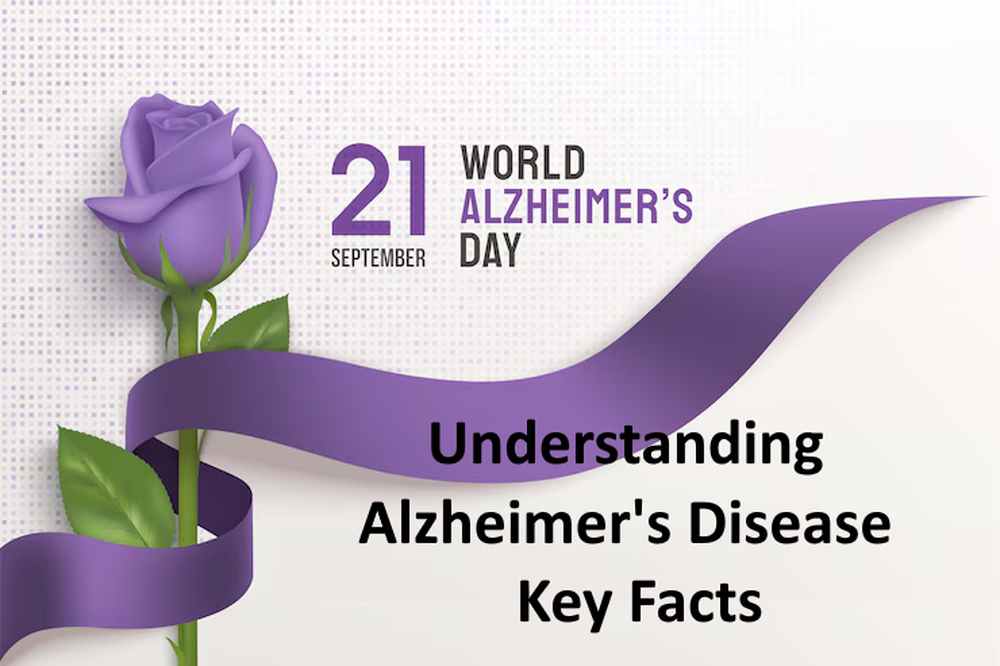Welcome to our comprehensive guide on Alzheimer’s disease. In this article, we will provide you with key facts about this neurodegenerative disease, including its symptoms, risk factors, and the importance of brain health and care. Whether you are seeking information for yourself or a loved one, we aim to increase your understanding and awareness of Alzheimer’s disease.
Key Takeaways:
- Alzheimer’s disease is a neurodegenerative disease that affects memory, thinking, and behavior.
- The most common symptoms include memory loss, confusion, and difficulty in solving problems.
- Age, family history, and genetics are some of the risk factors associated with the development of Alzheimer’s disease.
- Engaging in activities that promote brain health, such as exercise and healthy eating, may help reduce the risk of cognitive decline.
- Caring for individuals with Alzheimer’s disease requires patience, understanding, and creating a supportive environment.
What is Alzheimer’s Disease?
Alzheimer’s disease is a neurodegenerative disease that primarily affects the brain, leading to dementia and cognitive decline. It is the most common cause of dementia, accounting for approximately 60-80% of all cases. The disease is characterized by the accumulation of amyloid plaques and tau tangles in the brain, which disrupt the normal functioning of nerve cells.
Dementia, a condition commonly associated with Alzheimer’s disease, involves a decline in memory, thinking, and reasoning skills that are severe enough to interfere with daily life activities. As the disease progresses, individuals may also experience changes in behavior, personality, and the ability to communicate effectively.

Alzheimer’s disease belongs to a group of neurodegenerative diseases that result in the progressive degeneration and death of nerve cells. These diseases, including Parkinson’s disease and Huntington’s disease, share some common characteristics, such as the presence of abnormal proteins and the gradual impairment of cognitive functions.
“Alzheimer’s disease is a devastating condition that affects millions of people worldwide. By understanding its definition and characteristics, we can take steps towards early detection, intervention, and improved care for those affected.”
Comparing Neurodegenerative Diseases:
| Neurodegenerative Disease | Characteristics |
|---|---|
| Alzheimer’s Disease | Progressive cognitive decline, memory loss, plaques, and tangles in the brain |
| Parkinson’s Disease | Motor symptoms, tremors, stiffness, loss of balance, dopamine deficiency |
| Huntington’s Disease | Uncontrolled movements, cognitive decline, genetic mutation |
Recognizing the Symptoms and Risk Factors
Recognizing the symptoms of Alzheimer’s disease is crucial for early intervention and effective management of the condition. While the disease progresses differently in each individual, there are common signs to lookout for.
Common Symptoms of Alzheimer’s Disease
Memory loss is often one of the first symptoms experienced by individuals with Alzheimer’s. It can manifest as forgetting recent events, names of people, or difficulty following conversations. In the later stages, long-term memory loss may also occur.
Cognitive decline is another significant symptom of Alzheimer’s. This includes difficulties with problem-solving, decision-making, and concentration. Individuals may also experience challenges in planning and executing familiar tasks.
In addition to memory and cognitive decline, individuals with Alzheimer’s may exhibit behavioral changes. These can include mood swings, irritability, agitation, and confusion. They may have difficulty recognizing people or places they once knew well.
Risk Factors for Alzheimer’s Disease
While the exact cause of Alzheimer’s disease is still unknown, certain risk factors have been identified. Advanced age is the most significant risk factor, with the majority of cases occurring in individuals over 65. However, it is important to remember that Alzheimer’s is not a normal part of aging.
Family history of Alzheimer’s is another risk factor. Individuals with a parent or sibling who has had the disease are more likely to develop it themselves. Genetic factors, such as carrying the APOE ε4 gene, also increase the risk.

Other potential risk factors include previous head injuries, cardiovascular conditions like high blood pressure and heart disease, and lifestyle factors such as smoking, poor diet, and lack of physical exercise. New research suggests a link between heart health conditions, such as diabetes and high cholesterol, and an increased risk of Alzheimer’s disease.
| Risk Factors | Description |
|---|---|
| Advanced Age | The majority of Alzheimer’s cases occur in individuals over 65. |
| Family History | Having a parent or sibling with Alzheimer’s increases the risk. |
| Genetic Factors | Carrying the APOE ε4 gene is associated with a higher risk. |
| Head Injuries | Past head injuries may contribute to the development of Alzheimer’s. |
| Cardiovascular Conditions | High blood pressure, heart disease, and related conditions increase the risk. |
| Lifestyle Factors | Smoking, poor diet, and lack of exercise can contribute to Alzheimer’s risk. |
| Heart Health Conditions | Diabetes, high cholesterol, and other heart-related conditions may increase the risk. |
Strategies for Promoting Brain Health and Care
When it comes to Alzheimer’s disease and overall brain health, prevention and care are key. By implementing effective strategies, individuals can promote brain health and potentially reduce the risk of cognitive decline. Additionally, it is crucial to address the mental health needs of both individuals with Alzheimer’s disease and their caregivers.
1. Engage in Regular Cognitive Activities
Keeping the brain stimulated through cognitive activities is essential for maintaining brain health. Activities such as puzzles, reading, learning a new language, or playing a musical instrument can help improve cognitive function and delay cognitive decline.
2. Follow a Balanced Diet
Eating a well-balanced diet rich in fruits, vegetables, whole grains, lean proteins, and healthy fats can support brain health. Certain foods, such as those high in omega-3 fatty acids and antioxidants, have been associated with a reduced risk of cognitive decline. It is essential to consult with a healthcare professional or a registered dietitian for personalized dietary recommendations.
3. Stay Physically Active
Regular physical activity has been linked to improved brain health and a reduced risk of cognitive decline. Engaging in moderate aerobic exercises, strength training, and activities that require coordination and balance can benefit both physical and mental well-being.
4. Maintain Social Connections
Active social engagement plays a vital role in brain health. Participating in social activities, staying connected with friends, and maintaining strong relationships can help lower the risk of cognitive decline. Social interactions provide mental stimulation, emotional support, and a sense of belonging.
5. Get Quality Sleep
Getting adequate and quality sleep is crucial for brain health and overall well-being. Sleep plays a vital role in memory consolidation and cognitive function. Establishing a regular sleep schedule and creating a peaceful sleep environment can contribute to optimal brain health.
6. Manage Stress
Chronic stress can have detrimental effects on both brain health and overall mental well-being. Finding effective stress-management techniques, such as mindfulness meditation, deep breathing exercises, or engaging in hobbies, can help reduce stress levels and promote brain health.
7. Seek Professional Support
Caring for individuals with Alzheimer’s disease can be challenging, both emotionally and physically. Seeking professional support, such as counseling, support groups, and respite care, can provide caregivers with the necessary tools, education, and emotional support to ensure they can effectively care for their loved ones.
By implementing these strategies for promoting brain health and providing comprehensive care, individuals can take proactive steps to support their cognitive well-being and overall quality of life.
Conclusion
In conclusion, this article aimed to increase your understanding of Alzheimer’s disease by providing key facts related to its symptoms, risk factors, brain health strategies, and the importance of care. Alzheimer’s disease is a form of dementia that leads to memory loss and cognitive decline. It is one of the most prevalent neurodegenerative diseases affecting millions of people worldwide.
By prioritizing brain health and implementing preventive measures, we can significantly reduce the risk of developing Alzheimer’s disease. This includes engaging in regular mental and physical exercise, adopting a balanced diet, managing stress levels, and staying socially active. Scientists believe that maintaining a healthy lifestyle can help protect against cognitive decline and promote overall mental health.
Moreover, care is crucial for individuals with Alzheimer’s disease. Providing a supportive and understanding environment, along with specialized care and treatment, can improve their quality of life and help manage the progression of the disease. It is essential to stay informed about the latest research and advancements in Alzheimer’s treatment, as early detection and intervention can make a significant difference in managing symptoms and slowing down the disease’s progression.
FAQ
What is Alzheimer’s disease?
Alzheimer’s disease is a progressive neurodegenerative disease that affects the brain, causing a decline in memory, thinking, and behavior. It is the most common cause of dementia, a term used to describe a range of symptoms related to cognitive impairment.
What are the symptoms of Alzheimer’s disease?
The symptoms of Alzheimer’s disease may include memory loss, difficulty with problem-solving and decision-making, confusion, changes in behavior and personality, and struggles with language and communication. These symptoms often worsen over time as the disease progresses.
What are the risk factors for Alzheimer’s disease?
While the exact cause of Alzheimer’s disease is unknown, there are several known risk factors. Age is the greatest risk factor, with the majority of cases occurring in individuals aged 65 and older. Other risk factors include a family history of the disease, certain genetic factors, and certain lifestyle factors such as high blood pressure, obesity, and smoking.
Can Alzheimer’s disease be prevented?
While there is no known cure for Alzheimer’s disease, there are steps that can be taken to promote brain health and possibly reduce the risk of developing the disease. These include maintaining a healthy lifestyle with regular exercise, a balanced diet, getting enough sleep, engaging in mental stimulation activities, and staying socially and mentally active.
What can be done to care for an individual with Alzheimer’s disease?
Caring for someone with Alzheimer’s disease requires patience, understanding, and compassion. It is important to establish a routine, create a safe and supportive environment, provide assistance with daily activities, and ensure that their physical and emotional needs are met. Additionally, seeking support from healthcare professionals and joining support groups can be beneficial for both the individual with Alzheimer’s and their caregivers.




